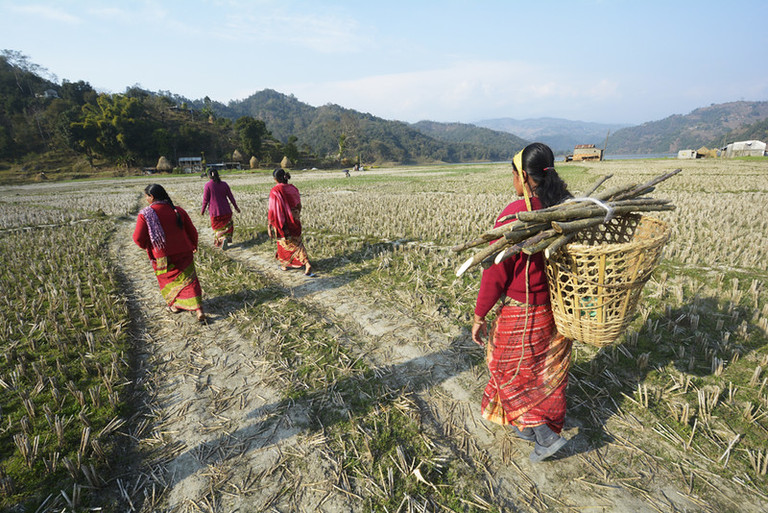New project explores impacts of biodiversity loss on women and girls
IIED is undertaking a review of the impacts of biodiversity loss on women and girls and has launched a survey to capture views on these impacts, the policy gaps and barriers to participation in decision making.

Women walking to conserved wetland area on the edge of Rupa Lake, Nepal (Photo: Neil Palmer/IWMI via Flickr, CC BY-NC-ND 2.0)
A new short-term project funded by the UK's Department for Environment Food and Rural Affairs (DEFRA) aims to provide insights on the differential impacts of biodiversity loss and environmental degradation on women and girls.
The project will also identify gaps in the available evidence on gender and biodiversity, identify new evidence to fill those gaps, and develop policy recommendations.
The project invites women's representatives, participants from women's networks and organisations, activists, researchers and policymakers to fill in a survey to identify the key impacts of biodiversity loss on women and girls; policy and implementation gaps; and barriers to inclusion of women and girls in biodiversity and environmental leadership and decision making.
A literature review seeks to understand the scope of evidence relating to the gendered impacts of biodiversity loss and environmental degradation and identify key knowledge gaps, while a case study review will capture the outcomes and impacts of including women in decision-making related to biodiversity and the environment.
“There is very little evidence from peer-reviewed literature, suggesting this is an under-researched, poorly understood area. This is concerning as biodiversity loss is a critical issue, and women and girls experience different, intersecting vulnerabilities but can be key agents of change to help tackle and create solutions,” says IIED researcher Francesca Booker.
A policy review aims to map the current state of play on gender and biodiversity commitments in relation to intergovernmental processes, declarations and international agreements. It will also review the current approaches to gender in national strategies related to biodiversity and the environment, as well as mapping key recommendations and ‘asks’ from civil society.
This review will show how international and national decision-making is (or is not) responding to gender-based priorities and addressing the inclusion and leadership of women.
The final report will be ready at the end of March 2022. Participation in the survey is ongoing, and we are still seeking views from interested participants.
Contact
Francesca Booker (francesca.booker@iied.org), researcher, IIED’s Natural Resources research group